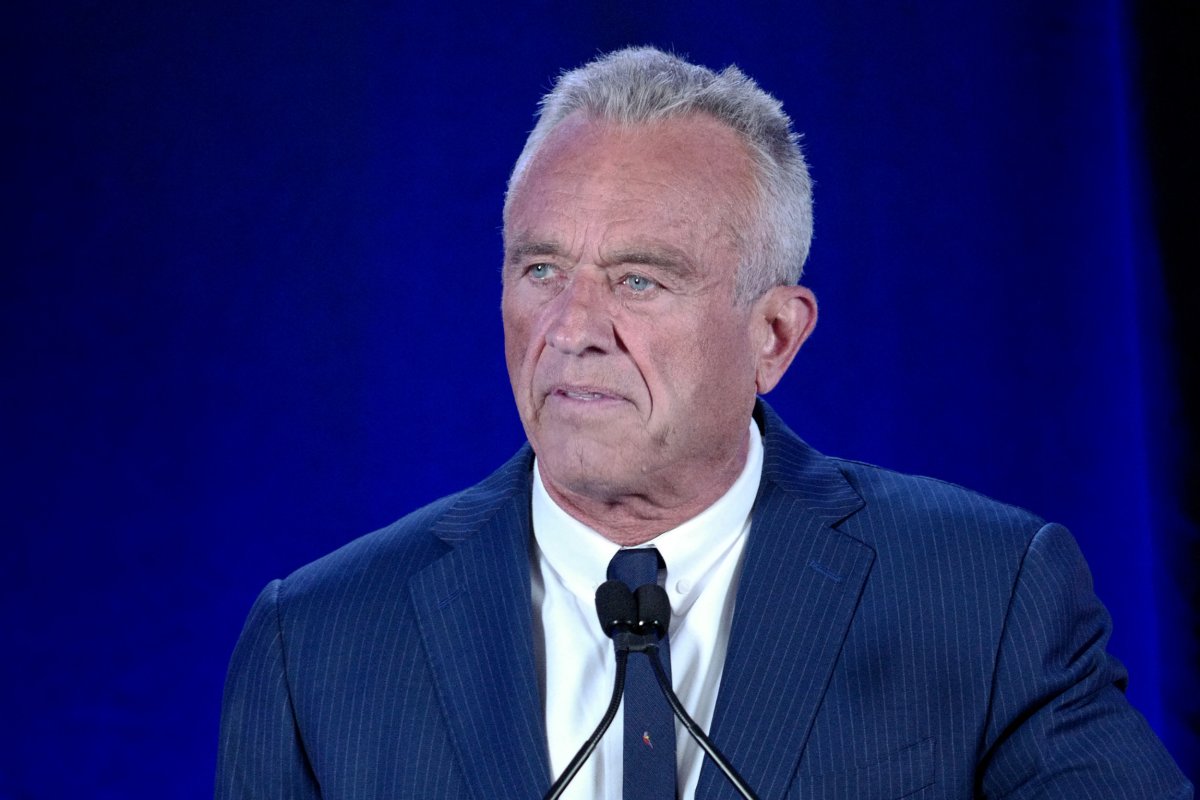Robert F. Kennedy Jr. is seeking to fight a ruling in New York that took him off the presidential ballot in the state even after he announced plans to suspend his presidential campaign as an independent candidate.
On Wednesday, lawyers for Kennedy asked an appeals court in New York to reinstate him on the presidential ballot in the state after a judge’s ruling earlier this month.
Albany Supreme Court Justice Christina Ryba ruled on August 12 that Kennedy had falsely claimed to be a New York resident on the petition forms. The ruling came in response to a lawsuit filed against Kennedy by Clear Choice, a Democratic-aligned political action committee.
The suit claimed that Kennedy’s nominating petition said that he lived in a suburb of Manhattan while he has actually been living in Los Angeles since 2014 with his wife, Cheryl Hines, co-star of HBO sitcom Curb Your Enthusiasm.
On August 23, Kennedy, a lifelong Democrat who ran as an independent for much of his 2024 campaign, announced he was suspending his presidential bid and instead endorsing Republican presidential nominee and former President Donald Trump. Meanwhile, there is growing speculation that Kennedy will be offered some sort of role in Trump’s administration in exchange for his support.

Robert F. Kennedy Jr. speaks in Phoenix, Arizona, on August 23, 2024. On Wednesday, lawyers for Kennedy asked an appeals court in New York to reinstate him on the presidential ballot in the state after a judge’s ruling earlier this month.
Photo by OLIVIER TOURON/AFP via Getty Images
Kennedy has started pulling his name from ballots in key battleground states, including Maine, where election officials confirmed Wednesday that he met the deadline to withdraw. However, Kennedy has urged supporters to continue backing him in other states.
Meanwhile, his legal team is defending his decision to list a friend’s suburban New York home as his address, maintaining that Kennedy wasn’t trying to mislead anyone and is right to call himself a New Yorker.
On Wednesday, Kennedy’s lawyer Jim Walden told an appeals court judge that “Robert F. Kennedy Jr. could have put his residence as the moon and no one would be confused with who Robert F. Kennedy is.”
Walden also noted that courts have historically accepted petition addresses as valid unless there is clear evidence of deception or confusion. While speaking to the judge, Walden said that Kennedy is “one of the most distinguished political families in United States history,” and that there was no evidence of deception.
John Quinn, the attorney representing voters named as plaintiffs in the suit, argued before the judges that Kennedy had a legal duty to complete his paperwork accurately.
“Mr. Kennedy could live anywhere. He just wasn’t allowed to lie about where he lives,” Quinn said.
This article includes reporting from The Associated Press.








